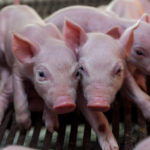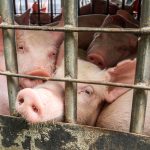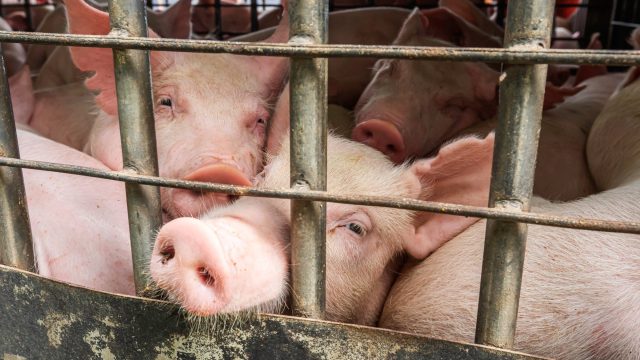
Ag-Gag Laws
Ag-Gag laws seek to “gag” would-be whistleblowers and undercover activists by punishing them for recording footage of what goes on in animal agriculture.
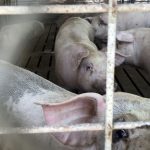

As the name suggests, Ag-Gag laws seek to “gag” would-be whistleblowers and undercover activists by punishing them for recording footage of what goes on in animal agriculture. They were originally designed to prevent the public from learning about animal cruelty.
Stop Ag-Gag Laws
Undercover investigations and whistleblowers have exposed some of the worst aspects of factory farming, but Ag-Gag laws punish people who speak out about cruelty in animal agriculture. Voice your opposition.
More recently, as is the case in North Carolina and Arkansas, states are passing laws which not only criminalize whistleblowing in agricultural facilities but any private business, including hospitals, elder care facilities, veteran care facilities, and schools.
Why Are Ag-Gag Laws Harmful?
The ability to investigate, document, and publicize corporate agriculture’s abuses is imperative both to the well-being of animals across the nation—and to our own health and safety.
Factory farms want to keep their cruel practices hidden from the public, but the public deserves the truth about the billions of animals suffering on industrial farms and whether laws are being broken, jeopardizing food safety, workers’ rights, and environmental standards.
Undercover investigations have revealed severe animal abuse on factory farms — animals beaten, kicked, maimed and thrown. These investigations have also exposed standard industry practices like the confinement of pregnant and nursing pigs in crates too small for them to turn around, the removal of horns and tails from animals without anesthesia, and sick and downed cows dragged on the ground before they are slaughtered.
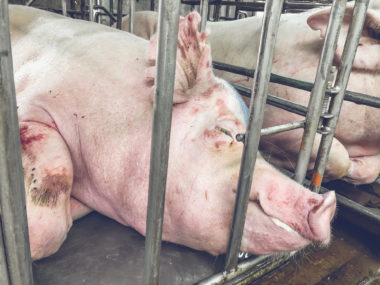
Banned for their cruelty in several states, gestation crates are metal crates only slightly larger than a pregnant pig’s body – so small that the pig cannot turn around or lie down comfortably.
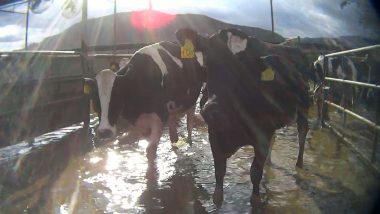
Naturally, cows live up to 22 years old. But cows used in the dairy industry are slaughtered before reaching an average age of 5 years old.
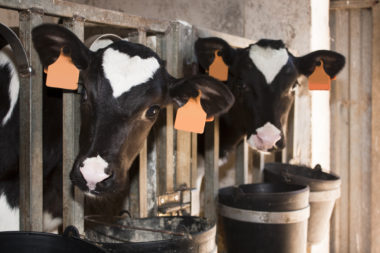
Male baby cows raised for veal are confined in tiny crates to restrict their movement for the four months before they are killed.
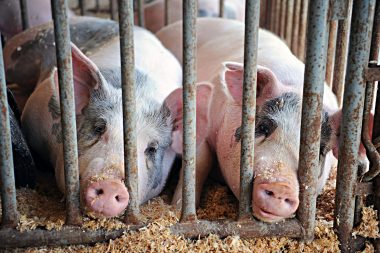
There are no federal laws governing the conditions in which farmed animals are raised – piglets are mutilated when their testicles are removed, teeth clipped, and tails cut off without anesthesia.
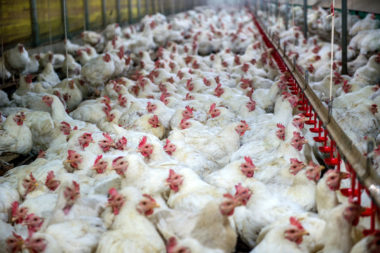
Cage free hens are often kept in cramped conditions, warehoused without access to fresh air or sunlight.
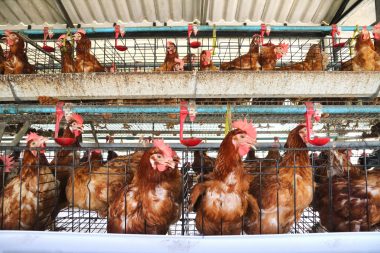
Traditional battery cages cram up to 11 birds into a single cage with each bird spending her entire life with less individual space than a sheet of printer paper.
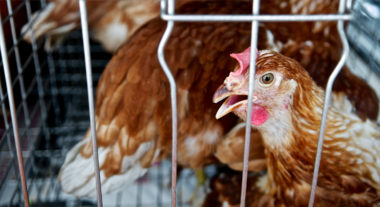
Caged hens are so cramped that birds often get trapped or impaled by the cage wire. Without the ability to extend their wings for months or years, the birds’ bones and muscles deteriorate.

The conditions on many fish farms are so poor that 15 - 80% of fishes die on the farm, often from suffocation due to low oxygen levels.
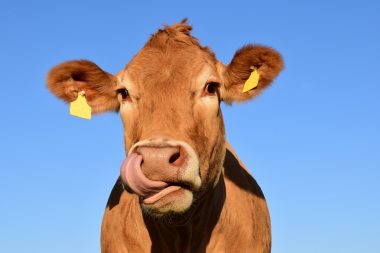
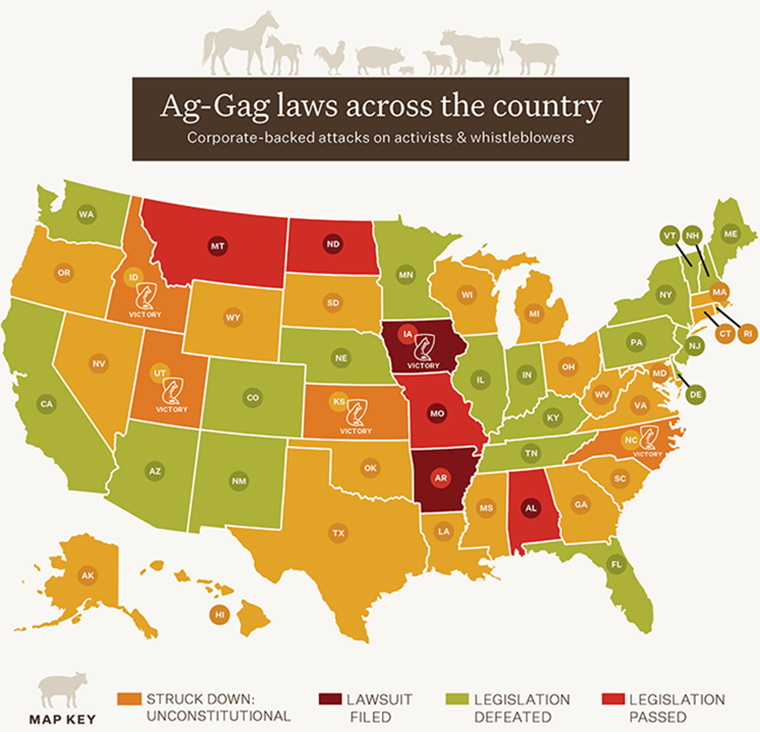
The Latest About Ag-Gag Laws
Animal Legal Defense Fund Statement on Arkansas’ New Unconstitutional Ag-Gag Law
Stop a New Ag-Gag Bill – Contact the Arkansas Tourism Bureau
Top Constitutional Law Scholar Supports the Animal Legal Defense Fund’s Idaho Ag-Gag Lawsuit
LIVE with the Animal Legal Defense Fund: Ag-Gag
See a timeline of key dates in the Animal Legal Defense Fund’s opposition to Ag-Gag laws.
Related News
-
California: Ban Cruel Octopus Farming!
Ask your state assemblymember to support the California Oppose Cruelty to Octopuses (OCTO) Act (A.B. 3162) to protect octopuses and marine ecosystems. -
Animal Legal Defense Fund Grant Supported Washington Attorney General’s Enforcement of Animal Cruelty Law
The judge sentenced a Snohomish County resident for killing then displaying neighborhood wildlife and shooting a kitten in the eye.April 18, 2024 News -
Animal Law Symposium 2024: State Confinement Laws and the Future of Farmed Animal Policy
All sessions are now available on demand!April 16, 2024 Article
Related Cases
-
Challenging Kansas’s Ag-Gag Law
Animal Legal Defense Fund et. al. v. Kelly et. al.
-
Challenging Iowa’s Ag-Gag Law
Animal Legal Defense Fund v. Kimberly K. Reynolds
-
Challenging North Carolina’s Ag-Gag Law
People for the Ethical Treatment of Animals v Roy Cooper - Lawsuit filed in 2016
Looking for case and legal resources? View Resources
See More